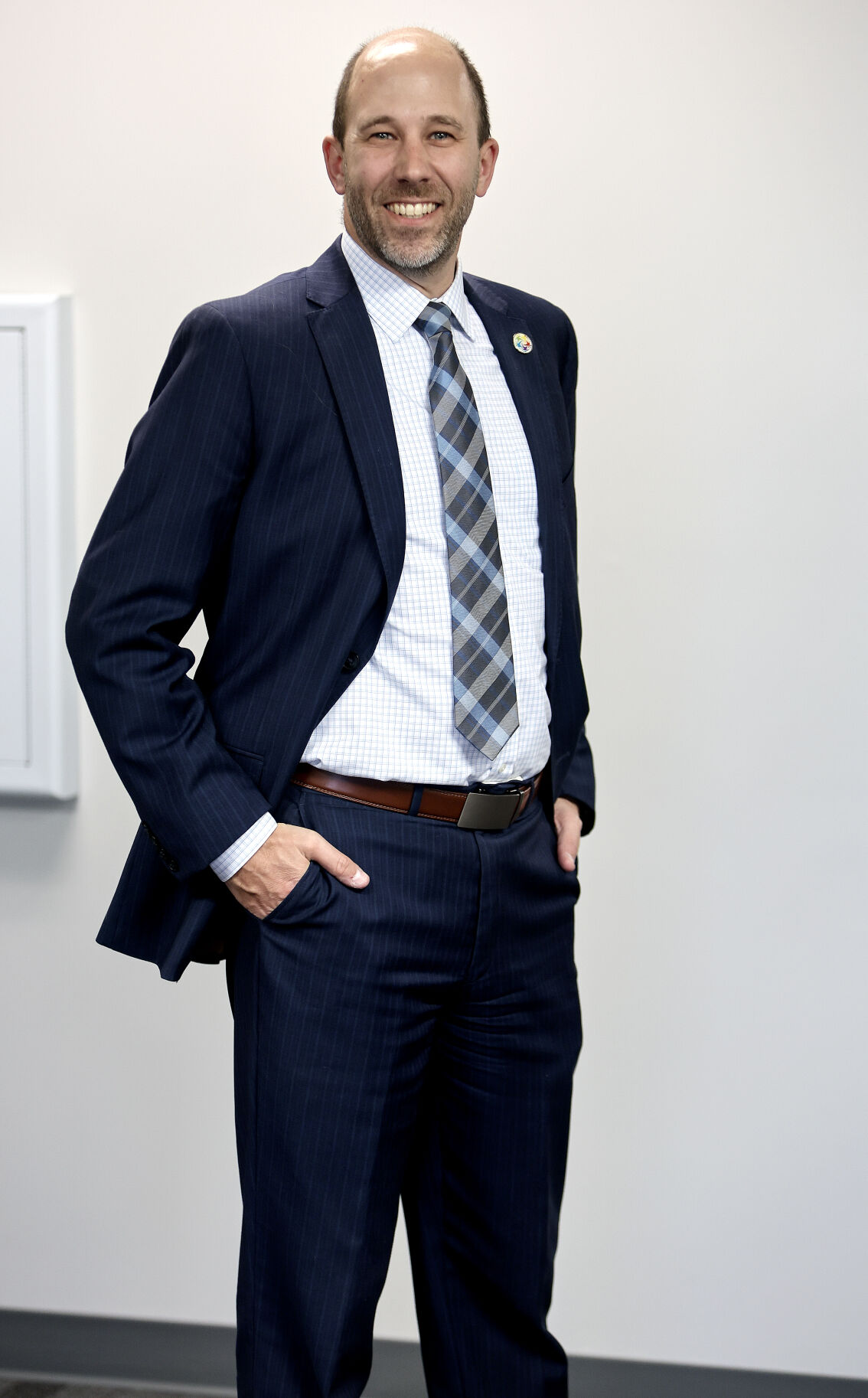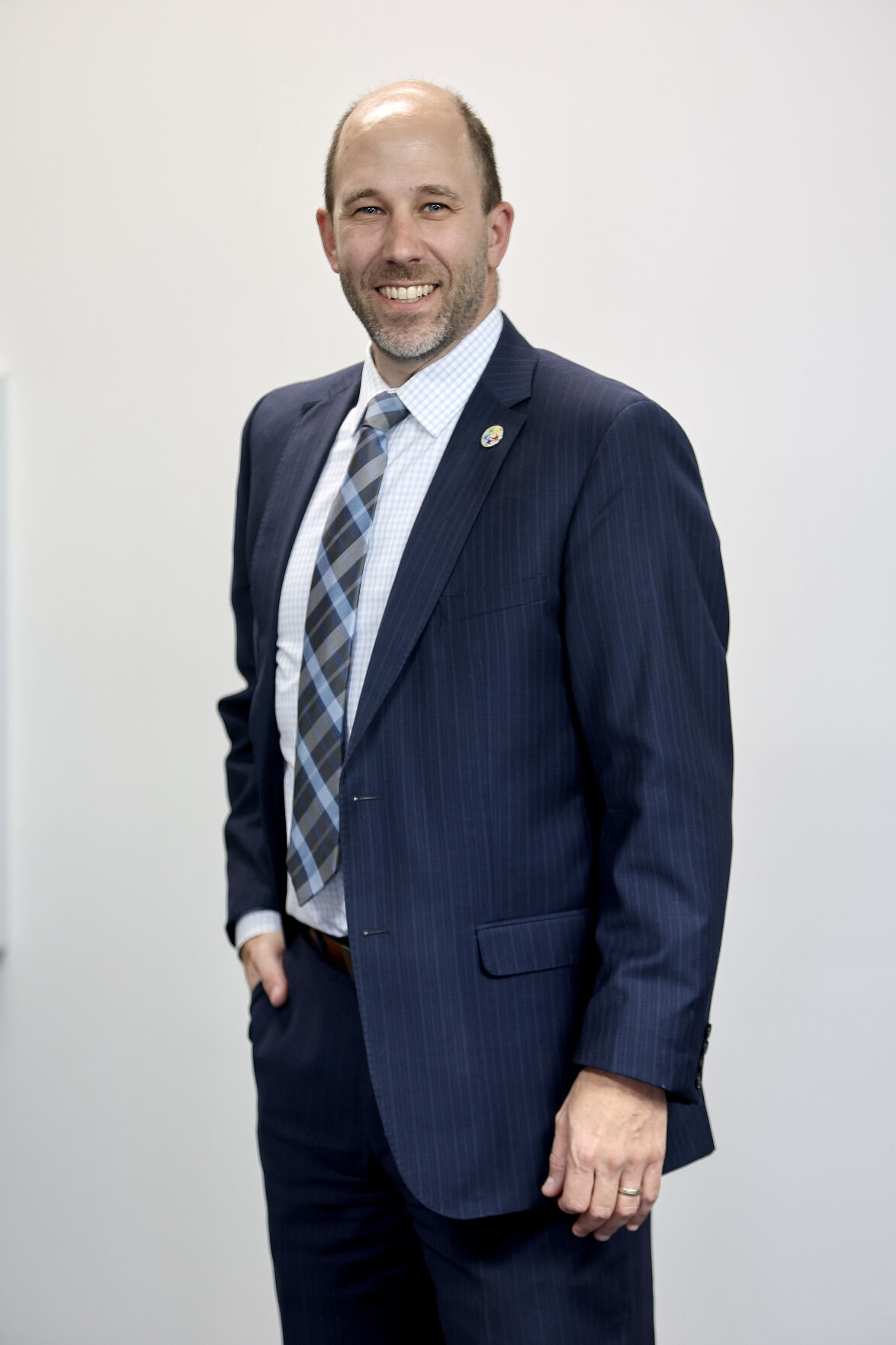Mike Cyze serves as the chief communication officer for the Dubuque Community School District. He is responsible for the overall communication strategy and external affairs programming for the pre-K through 12th district — one of the largest in Iowa, with an enrollment of approximately 10,000 students and almost 2,000 staff members in 17 schools.
A member of the district’s executive leadership team, Cyze provides strategic counsel to the superintendent, board of education and other district administrators. He is the district’s primary spokesperson and crisis management lead, and oversees the district’s strategic planning process, enrollment, community relations, media relations, communication and marketing efforts.
In the community, Cyze is vice chair of the board for United Way of Dubuque Area Tri-States, is a member of the Dubuque Area Chamber of Commerce Business Advocacy Committee and judge for the Chamber’s Dancing with the Stars — Dubuque Style.
He and his wife, Amanda, have three kids (Lauren, Caitlyn and Ben), and you can find them regularly traveling to youth sporting events and activities.
Tell us about your field and what attracted you to it.
Education at all levels, from pre-K to 12 through higher education, is a critical driver of quality of life, both in our own community and globally — and I’ve always been drawn to that intrinsic value. My college work-study job in the public relations office at Clarke University opened my eyes to the education sector as a career option without being an educator by training. It’s very rewarding work to be part of the purpose and promise of education.
How has your field changed in the time you’ve worked in it? How have you adapted?
The educational landscape continues to evolve and change. Our systems have adapted by placing increasing emphasis on reducing barriers to education and eventual employment, communicating the value of education in new ways and developing programs that continue to meet today’s demand. This all happens by being committed to a system of continuous improvement and effective strategic planning. At its core, our goals remain the same — to prepare students with the skills they need for a lifetime of success. How we do that must adapt to the world around us.
Is there a person or people who have had a tremendous impact on you?
The list is too long to mention — so many people, personally and professionally, have impacted my life. Each leaves their own mark and makes you a better person because of it. The late Sister Therese Mackin, who was executive vice president at Clarke University, comes to mind as an example. In those she worked with, she instilled a tremendously high expectation for quality of work that was only topped by her deep sense of pride for the work we do in education. I’ve always held that with me.
Do you have any advice for young people and/or new graduates?
When you are tapped on the shoulder, enthusiastically say yes even if you don’t feel ready. Throughout my career, I have been extremely fortunate to have mentors who gave me opportunities to work on new projects, tackle new problems and generally expand my organizational view. If they are inviting you, they believe that you can do it even if you don’t. Be willing to dive in — it almost always leads to a broader view of the world and exciting new opportunities.
What have you found to be the most valuable resource for learning? Are you an on-the-job learner or do you prefer another way?
Knowledge surrounds us like never before in history. First and foremost, I learn from those around me constantly. Embrace relationships with people who will challenge your thinking and push you to be better. Then, reinforce that by building a network outside your organization and keep up-to-date with best practices in your industry. All of these things combine to keep us always learning and improving.
Math vs. creativity. People person vs. introvert. Slow and steady vs. quick and nimble. Where do you fall on those divides? Do you believe there even is a divide?
All of the above. I don’t think there is a divide, but I think the key lies in the delicate balance of knowing when to employ each of these traits effectively. It’s also important to build your emotional intelligence in a way that helps you know yourself and where your strengths are so you can adjust accordingly. There is no right or wrong — the “correct” way is by always being authentically you.
When you think of the future, what kind of changes would you like to see in your field? In the broader world?
I believe as a society the value of having reasonable and civil conversations, even and especially when we disagree, has been lost. In my personal experience, when dealing with difficult issues, we are often much closer than we are apart. We need to have safe space to acknowledge our similarities and differences, respect them, and then seek to find a common path forward.
How has your professional life helped you grow as a person?
Working in education has definitely made me more inquisitive. When you are surrounded by learning each day, it becomes part of how you operate — and you thrive off of it and embrace the idea of learning to grow.
I also think working in education sustains my hope for the future. We often hear a negative narrative of “kids today.” But I can confirm that narrative is false. We are in good hands with the bright, talented, uplifting students who are preparing to be the next generation of leaders. I’m lucky to work in a field that reminds me of that daily.
How do you strike a work/life balance?
The first way is by having an extremely supporting family. I have been fortunate throughout my career to work with leaders who believe that trying to achieve 50/50 balance is a myth. It’s more about being where you need to be when you need to be there. Sometimes family takes priority, sometimes work takes priority. The key is being in the right place at the right time.



